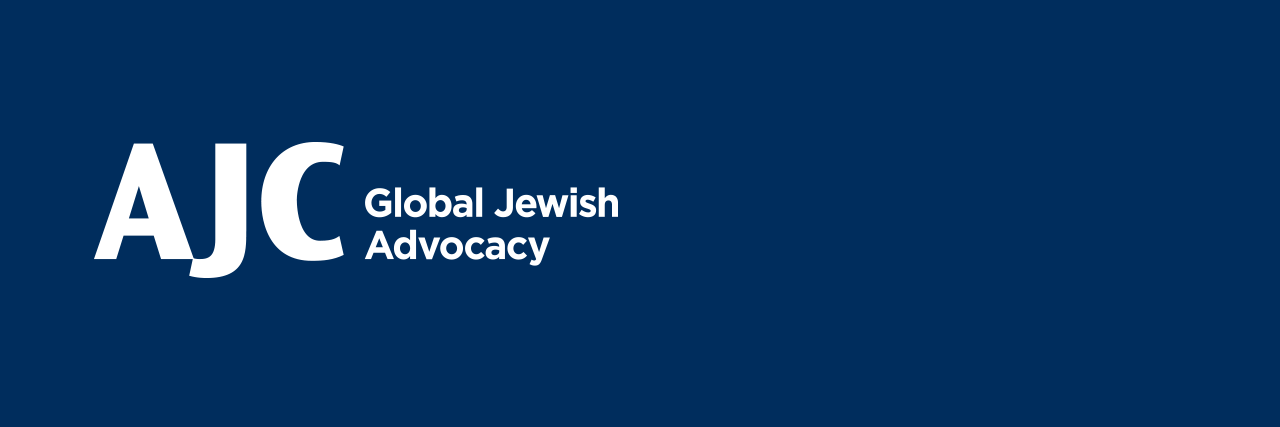July 17, 2020 — Brussels, Belgium
This piece originally appeared in Newsweek.
By Lukas Mandl and Daniel Schwammenthal
In an unprecedented transatlantic initiative, 235 cross-party lawmakers from the European Parliament and national legislatures from 25 EU member states, the U.K., Switzerland, the U.S., Canada and Israel have urged Brussels to list Hezbollah in its entirety as a terror organization. This growing number of parliamentarians includes numerous members and chairs of foreign affairs and EU committees, party leaders, parliamentary vice presidents and former foreign and defense ministers.
On the eve of the anniversaries of Hezbollah's deadly bomb attacks on the AMIA Jewish community center in Argentina in 1994 and an Israeli tourist bus in Bulgaria in 2012, the lawmakers sent a powerful Transatlantic Declaration to EU leaders, rejecting the fictional distinction the EU created seven years ago when it designated only Hezbollah's so-called "military" arm. This fiction has allowed the Shiite terror group to continue operating in Europe in support of its so-called "political" arm.
But an EU that stands for democracy, human rights and the rules-based international order cannot at the same time be a safe haven for terrorists or their supporters. What's more, the EU's commitments to Israel's security and to combating antisemitism are incompatible with a policy that allows a deeply antisemitic organization dedicated to the destruction of the Jewish state to use Europe as an operational hub.
"Hezbollah, the Iranian regime's most deadly proxy, operates a global terror network that threatens not only its neighbors, but also Western democracies," the declaration reads. "In Germany alone, Hezbollah has over 1,000 supporters. The group's violent and antisemitic ideology is poisoning the fabric of our pluralistic societies. This is most visibly the case through Hezbollah's annual 'Quds Day' marches, where calls for the annihilation of the Jewish state echo the darkest chapters of European history," the text continues.
Unfortunately, a flawed analysis rejecting the total listing of Hezbollah has become conventional wisdom in some European foreign policy circles. The standard arguments raised by these skeptics come usually dressed as hard-nosed realpolitik, but increasingly reflect a fantasy world. One such argument is that banning Hezbollah would supposedly "destabilize" Lebanon, suggesting that Iran's main proxy somehow contributes to Lebanon's stability. The Lebanese people protesting state corruption, and who call out Hezbollah as being at the center of this graft that has brought the country to the brink of financial ruin, beg to differ.
The declaration reviews some other salient facts about the so-called "Party of God": "Founded and funded by Tehran and sustained through organized crime, Hezbollah holds Lebanon hostage to its Iranian revolutionary agenda. Moreover, it spreads violence and terror throughout the entire region. Hezbollah collaborates with the murderous Assad regime and is complicit in horrific war crimes that have killed, maimed and driven out millions of Syrians."
Hezbollah is thus directly responsible for the refugee crisis that has reached both Europe and the Middle East. Lebanon itself, economically already weak and fraught by sectarian tensions, is hosting some 1.5 million refugees, a heavy financial and societal burden.
Moreover, in violation of U.N. Security Council Resolution 1701, Hezbollah has rearmed since the 2006 war with Israel and remains a state within a state with its own militia. At the same time, it increasingly controls official Lebanese state institutions from within, including the government and army. It commits the dual war crime of using its own civilian population as human shields to hide some 150,000 missiles, while also threatening Israeli civilians. To argue, therefore, that weakening such a destructive force could be "destabilizing" is to ignore all empirical evidence.
The only chance for economic recovery and political stability in Lebanon is the removal of Hezbollah's stranglehold on the country. Rather than destabilizing Lebanon, a total EU ban of Hezbollah would help strengthen the democratic forces in Lebanon. The protestors on the streets deserve Europe's full support. They will remember whose side we took.
Putting Hezbollah on notice could also help prevent yet another devastating conflict with Israel. It would signal to the terror group and its Iranian superiors that the EU would hold Hezbollah and Tehran responsible for any future war and civilian casualties. Such a firm European policy could thus serve as a deterrent against Iranian and Hezbollah aggression.
Then there is the claim that because Hezbollah also operates as a political party and is part of the Lebanese government, designating it in its entirety would prevent the EU and its member states from continued diplomatic engagement with Lebanon. But the examples of the U.S., the Netherlands, Canada, the U.K., Germany, the Gulf Cooperation Council and the Arab League prove otherwise. They have all designated or banned Hezbollah without sacrificing diplomatic relations with Beirut.
In April, Germany became the most recent EU member state to ban Hezbollah, and thus break ranks with the erroneous conventional wisdom. Already in December 2019, the Bundestag—in a move echoed by Austria's legislature this June—called for a change to the EU's policy on Hezbollah. Earlier this month, Berlin took over the rotating EU presidency. We are confident that Germany will lead the way on Hezbollah. Over the coming months, we will continue to raise signatures among lawmakers across Europe to underline the growing consensus in favor of a total EU terror designation. As the Transatlantic Declaration says: "With nothing less than our collective security and the integrity of our democratic values at stake, now is the time to act."
Lukas Mandl is a member of the European Parliament from Austria and chair of the Transatlantic Friends of Israel (TFI). Daniel Schwammenthal is the director of the AJC Transatlantic Institute and TFI Secretary General.



